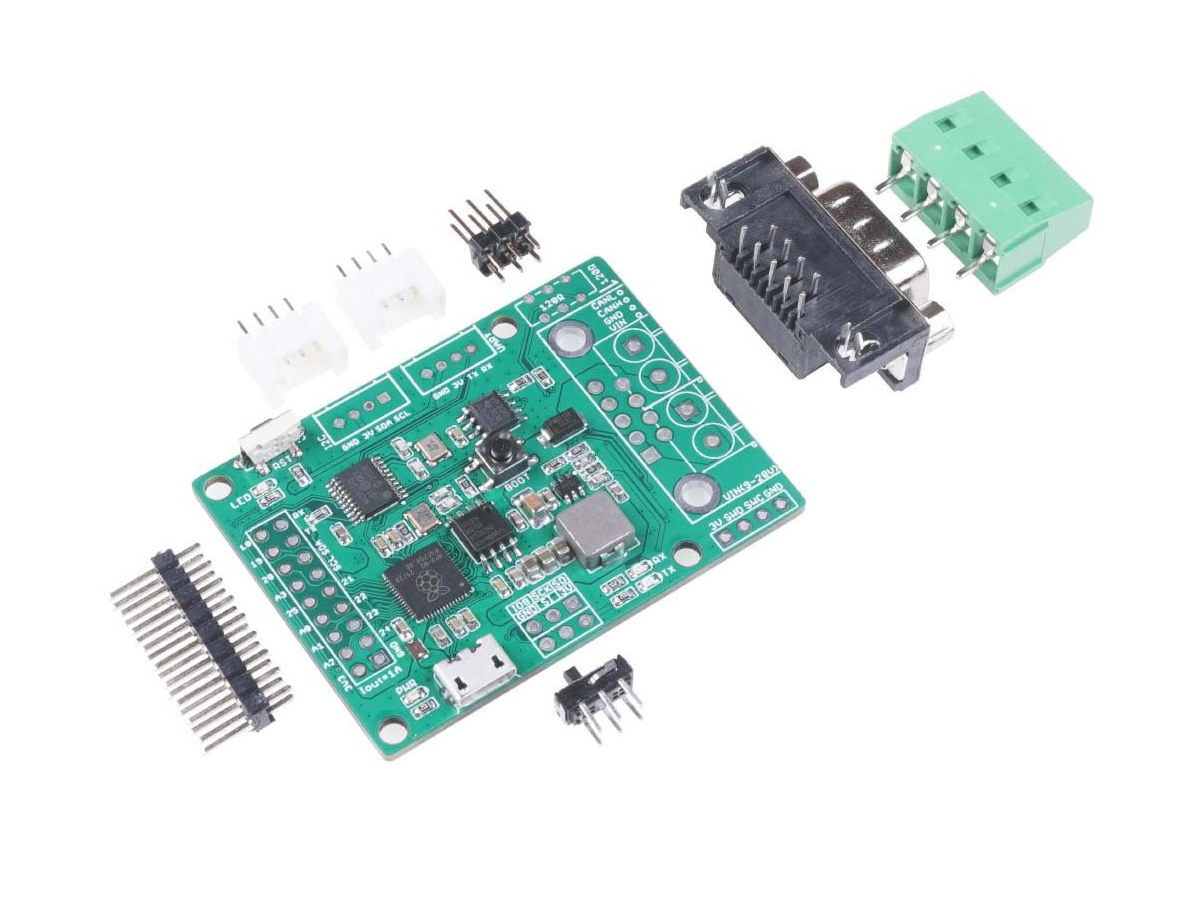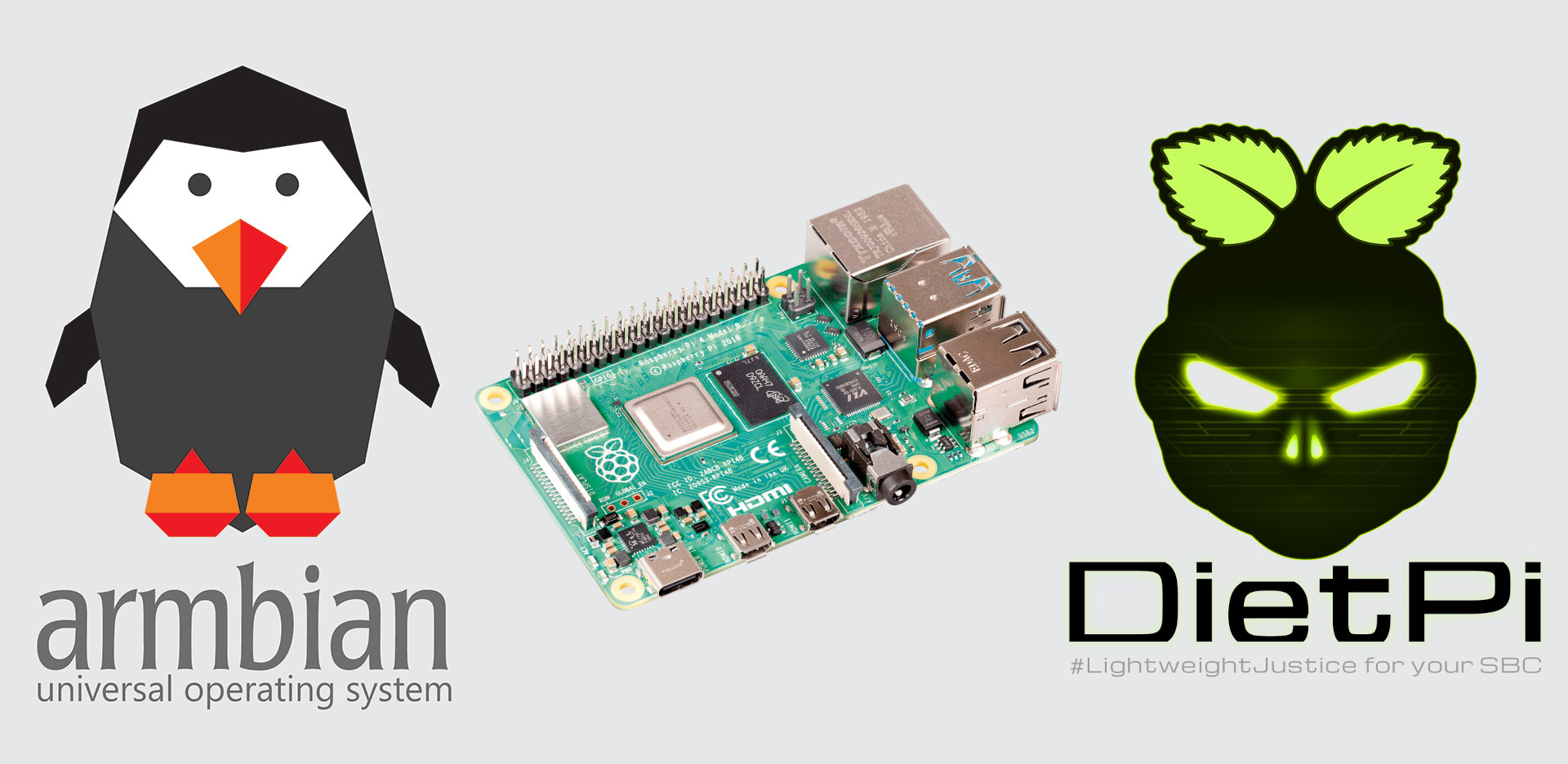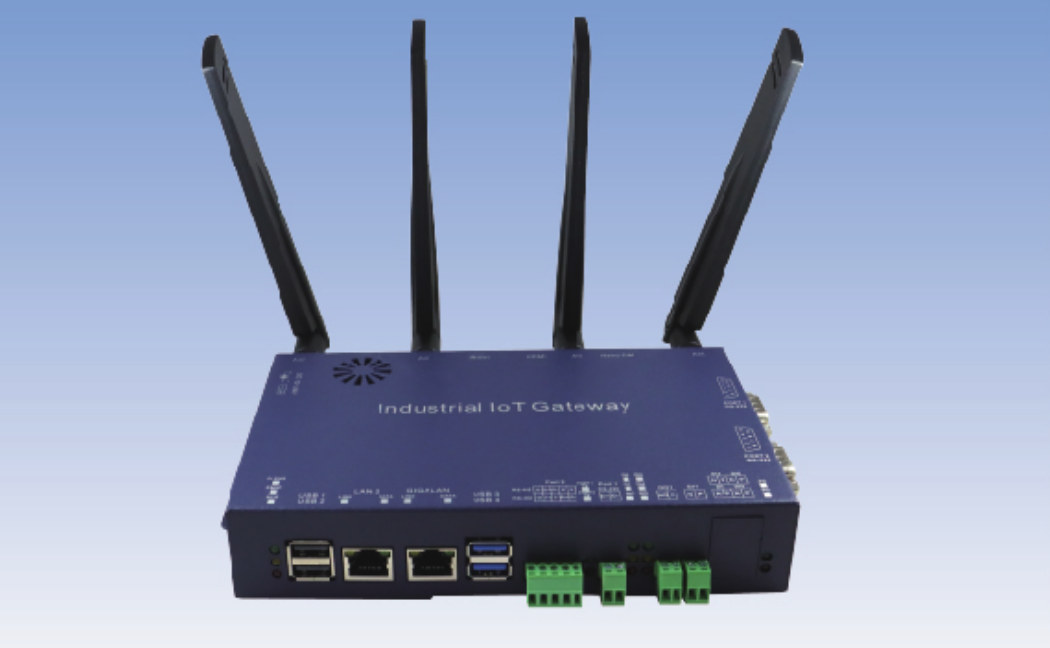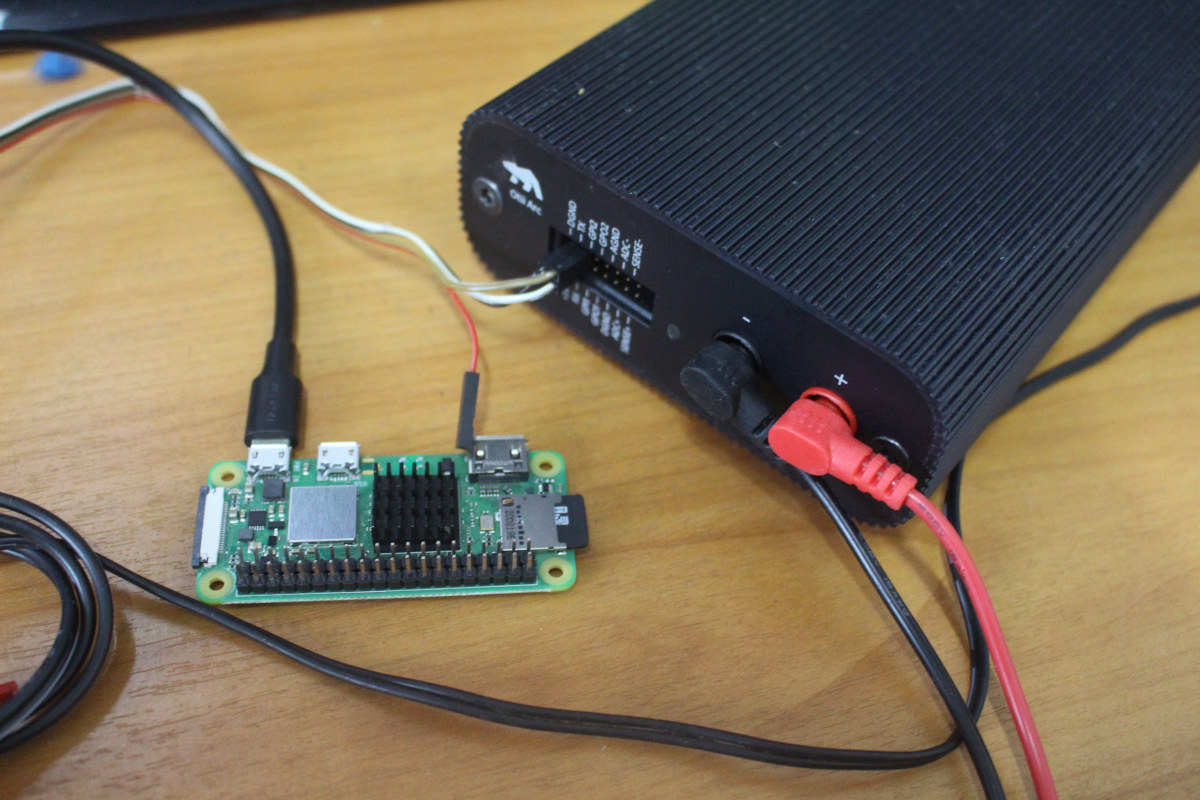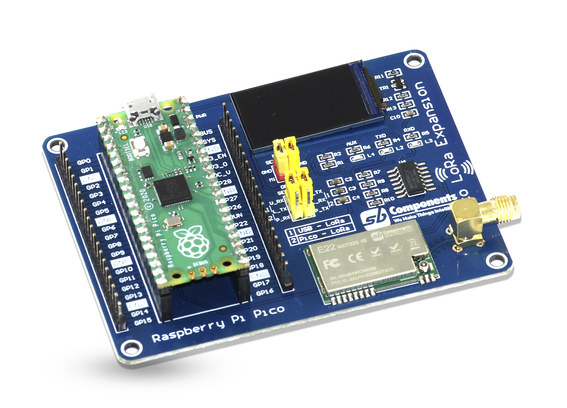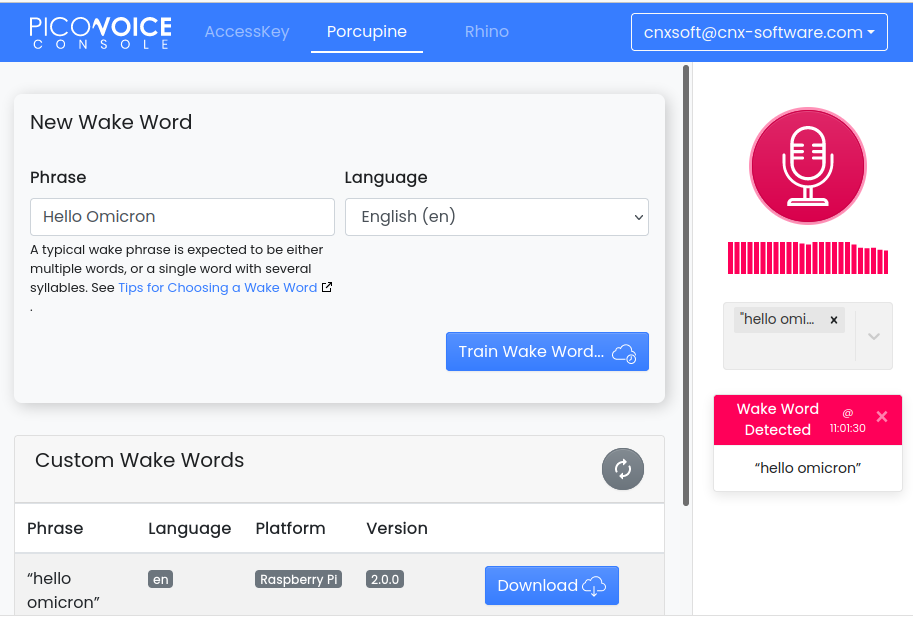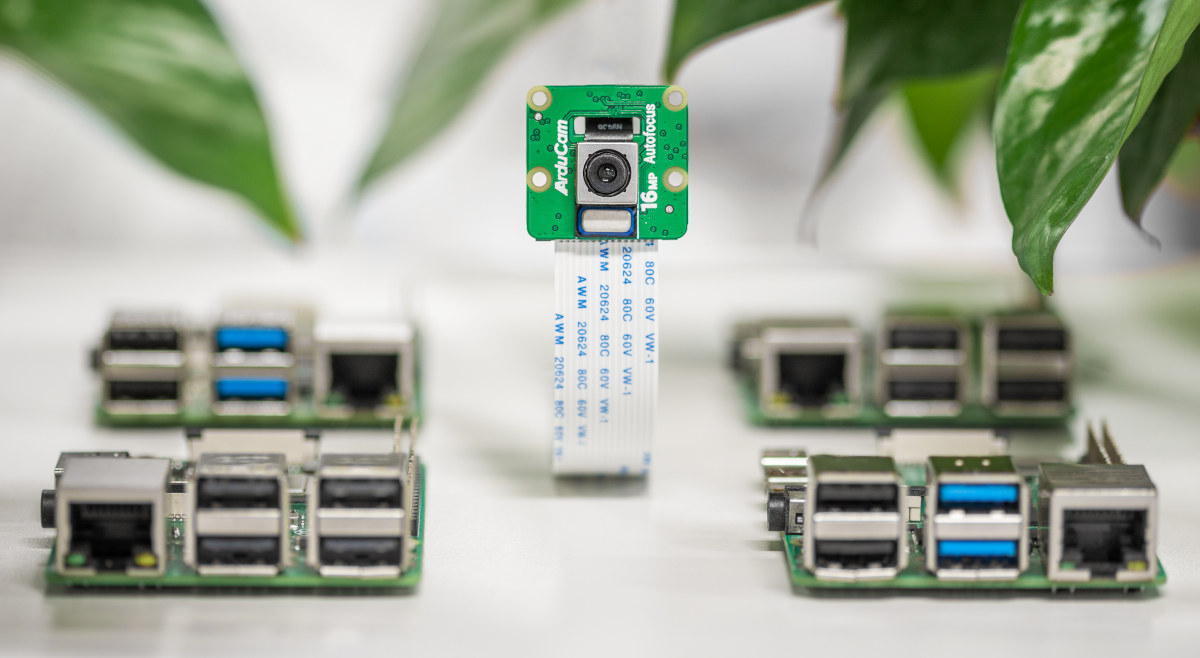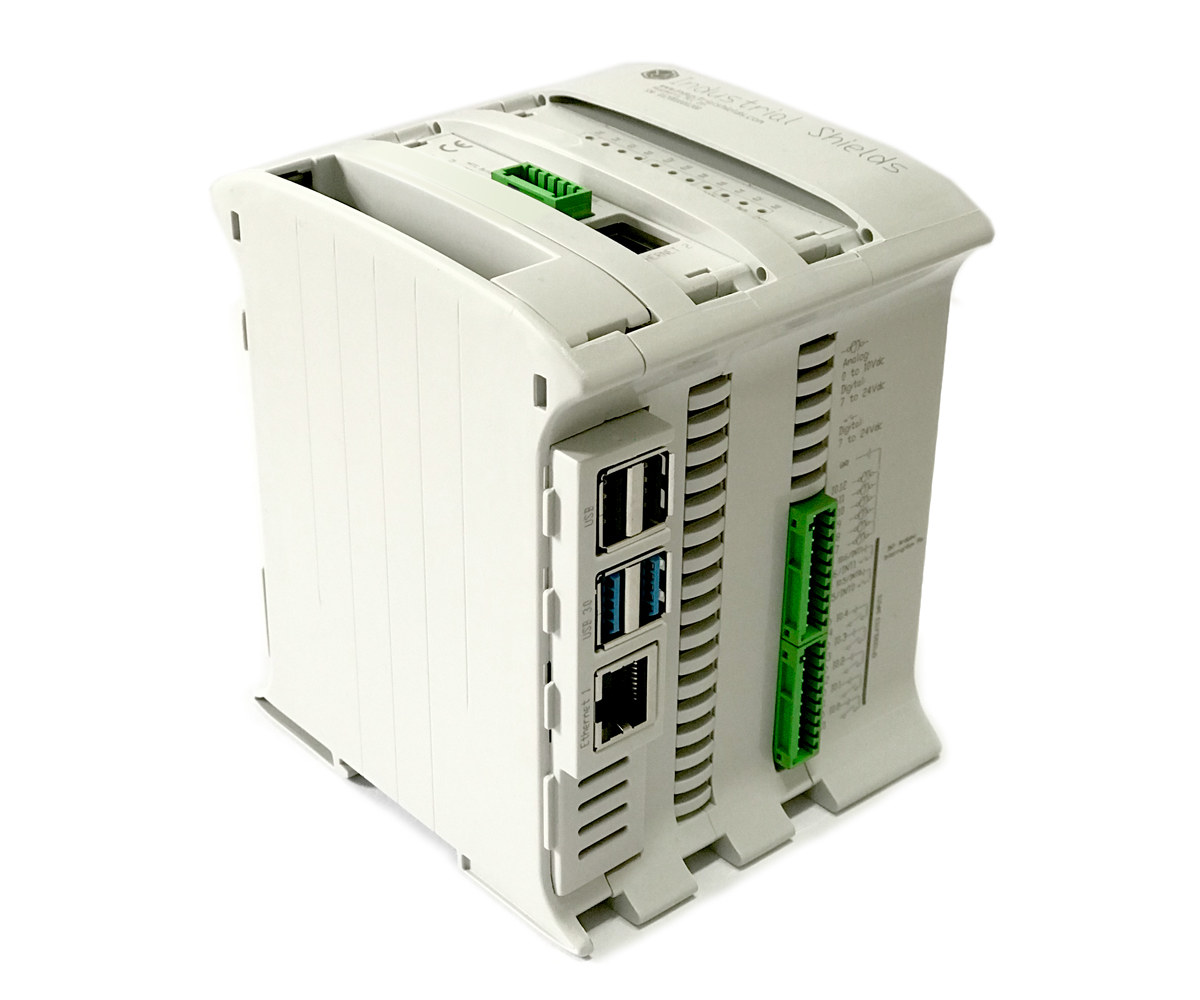We previously wrote about adding CAN Bus to Raspberry Pi Pico with CANpico expansion board. CANBed is a single board with a Raspberry Pi RP2040 microcontroller and a Microchip MCP2551 CAN receiver plus some extra I/Os that offers an alternative. CANBed supports the CAN 2.0 and OBD-II protocols via either a DB9 connector or a 4-pin terminal block, offers two 4-pin Grove headers and an extra I/O header for expansion, as well as 9-28V power input. CANbed specifications: MCU – Raspberry Pi RP2040 dual-core Cortex-M0+ microcontroller @ up to 133 MHz with 264KB SRAM Storage – 2MB SPI flash CAN 2.0 or OBD-II interface via DB9 port or 4-pin terminal block via Microchip MCP2551 CAN transceiver, 120 Ohm terminal resistor. USB – 1x Micro USB port for programming Expansion 2x Grove header (I2C + UART) SPI header 18-pin header with GPIO, UART, I2C, 4x analog inputs, 5V, GND Misc – […]
Raspberry Pi 4 gets Armbian test images, DietPi 7.9 released
Ubuntu and Debian images built by Armbian got popular because of the sad state of affairs of most single board computers. But since Raspberry Pi boards are rather well-supported by the Raspberry Pi Foundation and community, plus part of it is closed-source, there’s been little motivation by the Armbian community to work on it, and that means there’s no official support for Raspberry Pi. But some Armbian test images have just been released for Raspberry Pi 4, specifically Ubuntu 22.04 “Jammy Jellyfish” images with a CLI (headless) version, and two desktop variants with Cinnamon and XFCE desktop environments which you can download on their server(s). Separately, DietPi 7.9 lightweight Linux distribution based on Debian has also been released with various improvements. The good news about Armbian images for Raspberry Pi is that they exist, but the less good news is that those are still “test images”, and the popular board […]
5G IoT/AIoT industrial gateway ships with Raspberry Pi Compute Module 4
WPC-632-Pi CM4 is an industrial IoT gateway based on Raspberry Pi Compute Module 4 with optional 5G or 4G LTE cellular connectivity, that joins other Raspberry Pi CM4 industrial gateways such as CompuLab IOT-GATE-RPI4, CatsPi Industrial Lite, Modberry M500 CM4, among others. The Linux gateway features two Ethernet ports, RS232/RS485 and other I/Os via terminal blocks, mPCIe and M.2 sockets for expansion with 5G modem 4G LTE mode, AI accelerator, or an NVMe SSD, as well as support for 9V to 32V wide-range input power. WPC-632-Pi CM4 industrial gateway specifications: SoM – Raspberry Pi Compute Module 4 with Broadcom BCM2711 quad-core Cortex A72 processor with VideoCore VI GPU, up to 8GB RAM, up to 32GB flash, optional wireless module Storage – Optional PCIe SSD via M.2 key M socket Video and audio output – 1x micro HDMI port up to 4Kp60 with audio Camera – 1x MIPI CSI-2 connector Connectivity […]
A deep dive into Raspberry Pi Zero 2 W’s power consumption
When I completed my review of Raspberry Pi Zero 2 W, I mentioned I would test the power consumption of the board later. It took a while, but I’ve finally come around it using Otii Arc from Qoitech and Otii software to provide some pretty power consumption charts, and even energy consumption. Since the Raspberry Pi Foundation recommends a 5V/2.5A power supply, I’ll first try to get as close as possible as 2.5A, then I’ll go through tricks to reduce idle power consumption to less than 75 mA / 375 mW, and finally check the energy consumption under various CPU core count and frequency. Raspberry Pi Zero 2 W Power consumption under load, with accessories I started with the latest Raspberry Pi OS Lite “Bullseye” image and connected my Raspberry Pi Zero 2 W board to Qoitech Otii Arc tools as shown below. It used to cost around $500, but […]
LoRa expansion boards work with Raspberry Pi SBC and Raspberry Pi Pico board (Crowdfunding)
We’ve covered a number of LoRa solutions based on Raspberry Pi boards, and SB Components is now offering another with the LoRa HAT for Raspberry Pi equipped with an Ebyte E22 LoRa module operating in either the 433 MHz, or 868 and 915 MHz bands. The company also offers a LoRa expansion for Pico based on the same E22 module, adding a small 1.14-inch LCD for information display, and designed for the Raspberry Pi Pico board with the RP2040 dual-core Cortex-M0+ microcontroller. LoRa HAT for Raspberry Pi specifications: LoRa connectivity LoRa Module (one or the other) Ebyte E22-900T22S based on SX1262, operating in the 850 MHz to 930 MHz band Ebyte E22-400T22S based on SX1268, operating in the 410 MHz to 493MHz band Supported frequencies – 433 MHz, 868 MHz, 915 MHz Range – Up to 5 km line-of-sight Antenna – SMA antenna connector USB – 1x Micro USB port […]
PicoVoice offline Voice AI engine gets free tier for up to 3 users
PicoVoice offline Voice AI engine has now a free tier that allows people to create custom wake words and voice commands easily for up to three users on any hardware including Raspberry Pi and Arduino boards. I first learned about PicoVoice about a year ago when the offline voice AI engine was showcased on a Raspberry Pi fitted with ReSpeaker 4-mic array to showcase the company’s Porcupine custom wake word engine, and Rhino Speech-to-Intent engine. The demo would support 9 wake words with Alexa, Bumblebee, Computer, Hey Google, Hey Siri, Jarvis, Picovoice, Porcupine, and Terminator. More importantly, the solution allows you to easily create your own custom words in minutes from a web interface by simply typing the selected wake word, with no need for hundreds of voice samples or waiting weeks to get it done. So I tried “Hey You” first, but I was told it was too short, […]
A $25 16MP camera with autofocus for Raspberry Pi boards (Crowdfunding)
ArduCam has launched a $25 16MP camera with autofocus for Raspberry Pi boards with 40% higher resolution than the 12MP Raspberry Pi HQ camera, while keeping the compact form factor of the 8MP Raspberry Pi Camera V2. The camera is equipped with a 16MP Sony IMX519 sensor, works with any Raspberry Pi board with a MIPI CSI interface, and the company claims that with the existing camera tuning algorithms from the Raspberry Pi Foundation, the camera module beats the Raspberry Pi HQ camera’s quality in every aspect including sharpness, saturation, exposure, and more. The downside is that it lacks supports for interchangeable lenses. Arducam 16MP camera specifications: Sensor – Sony IMX519 sensor with 4656 x 3496 pixels resolution Still resolution – 16MP Video modes – 1080p30, 720p60 Optical size – Type 1/2.53″ Focal ratio – 1.75 Focal length – 4.28 mm Autofocus – Yes with range 10cm to ∞. As […]
Raspberry Pi 4 PLC Industrial controller targets IIoT applications
I’ve just noticed Boot&Work Corp was now offering an “Industrial Shields” branded PLC industrial computer powered by Raspberry Pi 4 SBC. We previously covered the company in 2017 at a time when they provided Arduino-based PLC modules optionally controlled with 10.1-inch panel PCs based on ARM Linux SBCs such as Raspberry Pi or Banana Pi. The “Raspberry Pi PLC Industrial Controller” is offered with either optoisolated outputs or relay outputs, and optional GPRS connectivity. The Linux PLC is equipped with up to 36 digital inputs, 16 analog inputs, 8 analog outputs, and 6 interrupts, as well as communication interfaces such as CAN bus, up to 2x Ethernet ports, dual RS-485, WiFi, and Bluetooth. Raspberry Pi PLC Industrial Controller basic specifications: Single board computer – Raspberry Pi 4 SBC with 2GB to 8GB RAM, WiFi 5, and Bluetooth 5.0 connectivity Storage – 8GB MicroSD card Video Output – 2x Micro HDMI […]


